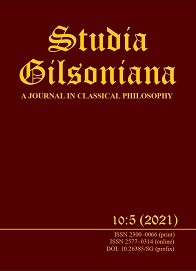The ‘Unity of Economic and Moral Practice’: Japanese Religious Sensibility and the Person-Centered Economic Tradition of Japan
The ‘Unity of Economic and Moral Practice’: Japanese Religious Sensibility and the Person-Centered Economic Tradition of Japan
Author(s): Jason MorganSubject(s): Philosophy
Published by: International Étienne Gilson Society
Keywords: Ōmi merchants; Ishida Baigan; Shibusawa Eiichi; Pure Land Buddhism; Shintō; Hiroike Chikurō; Moralogy; sanpō yoshi; dōkei ittai;
Summary/Abstract: In Japan, the ideal of economic practice has long been rooted in a native Shintō-inspired religious sensibility according to which the world is populated by a myriad of deities (yaoyorozu no kami; lit., “the eight million gods”). This engenders an understanding of the other in an economic transaction as having a transcendent nature, and of the household and wider society as a fortiori transcending (both spiritually and diachronically) the individual economic actor. In turn, the transcendent view of the human person has nurtured a person-centered approach to economic activity in Japan. The author examines three iterations of Japanese spiritually-inflected economic activity—the Ōmi merchants, the Shingaku teachings of Ishida Baigan, and the “unity of economic and moral practice” views of Shibusawa Eiichi and later business ethics thinkers—to show that, regardless of specific creed, Japanese economic thinking tends to reproduce the understanding of economic activity as ideally beneficial for human persons. By viewing the human person as an end and never as a means—an anthropology which is ultimately Shintōist, although broadly compatible with other beliefs—the standard economic actor in Japan works for the betterment of his counterpart and of society as a whole. This human-centered approach should and can be replicated in other countries a-round the world.
Journal: Studia Gilsoniana
- Issue Year: 10/2021
- Issue No: 5
- Page Range: 1137-1181
- Page Count: 45
- Language: English

